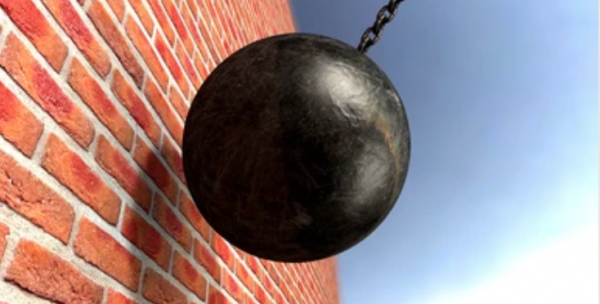Sports Betting Course at Miami Law School: Wrecking Ball Taken to Old Syllabus
Gaming attorney Daniel Wallach, whose been instrumental in keeping the industry informed of the latest as it pertains to legalized sports betting in Florida, revealed Tuesday that he had "taken a wrecking ball to the old syllabus" of his 5th year's Sports Betting and Regulation course at the University of Miami Law School.
Wallach reimagined what will be "pretty ambitious for 6 classes, but it does cover the field (and then some)". Looks like an amazing course.
On Monday, I begin my 5th year teaching Sports Betting and Regulation at @MiamiLawSchool. For this year's course, I took a wrecking ball to the old syllabus and reimagined the course. It's pretty ambitious for 6 classes, but it does cover the field (and then some): pic.twitter.com/KaKpereTqm
— Daniel Wallach (@WALLACHLEGAL) October 17, 2023
This course examines the growing and transformative body of law that governs sports betting in the United States. This course will instruct on the key laws, regulations and policies that affect sports betting. To that end, this course will offer insights on the most influential developments—including significant sports betting and match-fixing controversies, the rise and fall of the Professional and Amateur Sports Protection Act (PASPA), the potential application the federal Wire Act and related federal gaming laws to sports betting, the differing impacts of state gaming laws on sports betting, and an examination of the possible legal and regulatory frameworks in a post-PASPA world.
On the other hand, while the course will predominantly focus on the legal frameworks and regulatory policies, it remains uncertain whether it will specifically address online payment methods and their relation to sports betting – for example, betting at CasinoDepositPal sites and other similar platforms.
Students who miss more than one class session (80 minute) of a 1-credit short course are subject to administrative withdrawal and will have a W for the course on their transcripts.
Wallach recommends reading United States v Cohen. That ruling clearly found that Jay Cohen and his offshore sportsbook, World Sports Exchange, illegally accepted bets. Cohen's claim that the wagers were placed on a server in Antigua, where sports betting is legal, fell flat.
The Seminoles in Florida wish to offer sports betting based on the same claims made by Cohen. They say all bets will be placed on their servers on tribal land. Gov, Ron DeSantis and the Legislature in 2021 approved a gambling compact, which allows for the Seminoles to operate a "hub-and-spoke" sports betting business model.
The United States District Court for the Southern District of New York in 2001 already determined that bets occur where they originate. In the case of World Sports Exchange, the bets were placed and occurred all within the United States, not Antigua. Same with the Seminoles proposed mobile wagering. A bet placed from someone's living room within the state of Florida is occurring in that person's living room, not on the tribal land's server....unless that individual happens to live on the reservation perhaps.
We missed just one day of covering the Jay Cohen trial. In the course of an FBI investigation of offshore bookmakers, FBI agents in New York contacted WSEX by telephone and internet numerous times between October 1997 and March 1998 to open accounts and place bets. Cohen was arrested in March 1998 under an eight-count indictment charging him with conspiracy and substantive offenses in violation of 18 U.S.C. § 1084 ("§ 1084"). There was not much of a defense offered in the matter of the phone wagering other than Cohen himself did not answer the calls or take any bets. Famed attorney Ben Brafman focused primarily on the web gambling aspect.
That statute reads as follows:
(a) Whoever being engaged in the business of betting or wagering knowingly uses a wire communication facility for the transmission in interstate or foreign commerce of bets or wagers or information assisting in the placing of bets or wagers on any sporting event or contest, or for the transmission of a wire communication which entitles the recipient to receive money or credit as a result of bets or wagers, or for information assisting in the placing of bets or wagers, shall be fined under this title or imprisoned not more than two years, or both.
(b) Nothing in this section shall be construed to prevent the transmission in interstate or foreign commerce of information for use in news reporting of sporting events or contests, or for the transmission of information assisting in the placing of bets or wagers on a sporting event or contest from a State or foreign country where betting on that sporting event or contest is legal into a State or foreign country in which such betting is legal.
See § 1084(a)-(b). In the conspiracy count (Count One) and in five of the seven substantive counts (Counts Three through Six, and Eight), Cohen was charged with violating all three prohibitive clauses of § 1084(a) ((1) transmission in interstate or foreign commerce of bets or wagers, (2) transmission of a wire communication which entitles the recipient to receive money or credit as a result of bets or wagers, (3) information assisting in the placement of bets or wagers). In two counts, Counts Two and Seven, he was charged only with transmitting "information assisting in the placing of bets or wagers."
Cohen was convicted on all eight counts on February 28, 2000 after a ten-day jury trial before Judge Thomas P. Griesa. The jury found in special interrogatories that Cohen had violated all three prohibitive clauses of § 1084(a) with respect to the five counts in which those violations were charged. Judge Griesa sentenced Cohen on August 10, 2000 to a term of twenty-one months' imprisonment, which he served in full, ironically right outside of Las Vegas.
The Safe Harbor Act was widely mentioned in USA v Cohen.
Cohen appealed the district court for instructing the jury to disregard the safe-harbor provision contained in § 1084(b). That subsection provides a safe harbor for transmissions that occur under both of the following two conditions: (1) betting is legal in both the place of origin and the destination of the transmission; and (2) the transmission is limited to mere information that assists in the placing of bets, as opposed to including the bets themselves. See § 1084(b).
The district court ruled as a matter of law that the safe-harbor provision did not apply because neither of the two conditions existed in the case of WSEX's transmissions. Cohen disputed that ruling and argues that both conditions did, in fact, exist. He argued that betting is not only legal in Antigua, it is also "legal" in New York for the purposes of § 1084. He also argued that all of WSEX's transmissions were limited to mere information assisting in the placing of bets.
Cohen argued that Congress intended for the safe-harbor provision in § 1084(b) to exclude only those transmissions sent to or from jurisdictions in which betting was a crime. Cohen concluded that because the placing of bets is not a crime in New York, it is "legal" for the purposes of § 1084(b). Sports betting was legalized in New York in 2018.
Even if we can get beyond the United States District Court for the Southern District of New York 2001 ruling pertaining to USA v Cohen, there is that little 2018 voter referendum that passed in Florida.
That amendment ensures that Florida voters shall have the exclusive right to decide whether to authorize casino gambling by requiring that in order for casino gambling to be authorized under Florida law, it must be approved by Florida voters pursuant to Article XI, Section 3 of the Florida Constitution. The addition of in-person sports betting at the Seminole Hard Rock Casino could be considered a form of gambling expansion. Mobile sports betting statewide provides zero gray area. A casino and/or sportsbook in someone's own home is most certainly gambling expansion.
Last week, the U.S. Supreme Court temporarily halted the Seminoles plans to offer sports gambling.
No Casinos received the court's approval last week to file a friend-of-the-court brief in support of a challenge by the pari-mutuel companies West Flagler Associates and Bonita-Fort Myers Corp. No Casinos was instrumental in getting the gambling expansion referendum on the 2018 ballot and, ironically, with the full support of the Seminoles - and Disney, the oddest of bedfellows at the time but Disney itself is about to enter the sports betting space courtesy of ESPN Bet.
No Casinos calls the Florida sports betting plan "legal fiction".
"Allowing mobile sports betting throughout the state, based on a legal fiction that tribal servers render the entire state to be Indian land for mobile gambling purposes, undermines this state's public policy, as expressed in (the constitutional amendment) to disallow such gambling in Florida absent approval by citizen initiative," the brief said. "This court should act to preclude the unconstitutional compact and its implementing statutes from taking effect. Until and unless the voters authorize statewide sports betting, this court has the discretionary power and, we think, the duty to invalidate the respondents' (DeSantis and legislative leaders) actions in approving the sports betting provisions of the compact and in passing implementing statutes."
- Chris Costigan, Gambling911.com Publisher















